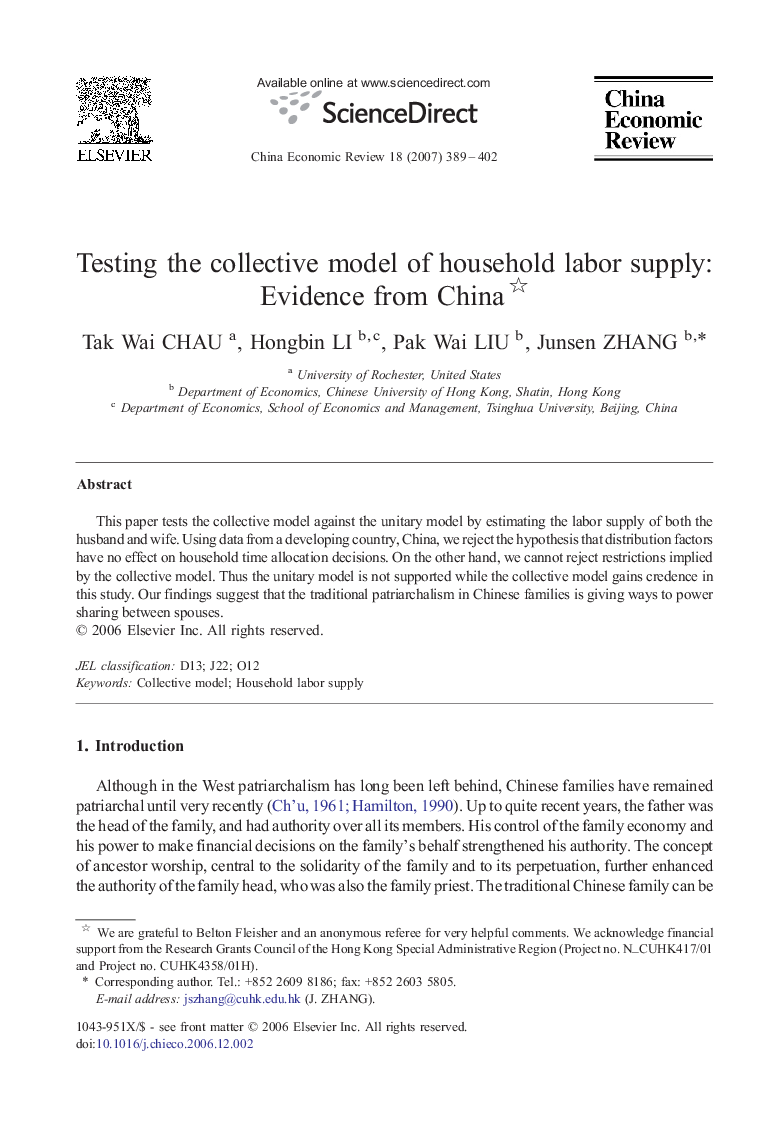| Article ID | Journal | Published Year | Pages | File Type |
|---|---|---|---|---|
| 5048003 | China Economic Review | 2007 | 14 Pages |
Abstract
This paper tests the collective model against the unitary model by estimating the labor supply of both the husband and wife. Using data from a developing country, China, we reject the hypothesis that distribution factors have no effect on household time allocation decisions. On the other hand, we cannot reject restrictions implied by the collective model. Thus the unitary model is not supported while the collective model gains credence in this study. Our findings suggest that the traditional patriarchalism in Chinese families is giving ways to power sharing between spouses.
Keywords
Related Topics
Social Sciences and Humanities
Economics, Econometrics and Finance
Economics and Econometrics
Authors
Tak Wai CHAU, Hongbin LI, Pak Wai LIU, Junsen ZHANG,
